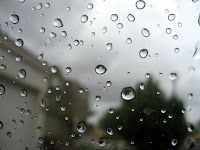Five ways to ruin a good story

Having a good story to tell is only half the battle – you can still make a mess of it in the telling. Here are five ways of doing just that.
Tell it in flashback
If a story is good enough, it doesn't need some fancy framing device to tell it. If the most interesting elements of the story are being told in flashback while the immediate front-story is static and less interesting then you're telling the wrong story. Flashbacks – if used at all – should augment a ripping front-story that is told through immediate and dramatic scenes.
Save it to the end
Don't make the mistake of confusing a mystery with a 'reveal' – a mystery involves a propulsive narrative driven by the reader discovering (along with the protagonist) the truth - whilst a reveal is just the writer holding out on the reader in the hope of capturing a similar kind of propulsion. Not the same thing. Your story should be exciting and revealing all the way through.
Have the best bits happen off page/stage/screen
I used to do it as a novice writer because I was scared of dealing with the big dramatic scenes - but I've seen it done by writers paid thousands by the BBC for the privilege. So the cuckold comes round to punch the cuckolder in the mouth but we don't get to see the cuckold finding out? Please.
Don't realise the full dramatic potential of story events
'So you slept with my friend?' said the cuckolded husband.
'Yeah, he was great,' said the wife.
'That's terrible of you. I'm off down the pub,' said the husband.
You get the point.
Make it the back-story
If the back-story is so good you have the front-story characters sitting around talking about it for the entire novel then you need to ask yourself why. The front-story should be the most compelling narrative in the novel – the back-story should either be the beginning of that story or shed further light on it. If the back-story IS the story then you need to make it the front-story.


Great advice. You're right. The best part of the story needs to be the front story!
ReplyDeleteGreat points - I love the one about making sure you keep the good stuff on-screen. :)
ReplyDeleteSo, so true. I read a very popular kids' novel lately that was full of twists and puzzles... but there was no way to 'play along' - you couldn't possibly have guessed the ending until the big reveal at the end. Annoyed the hell out of me.
ReplyDeleteAlso read another kids' novel that had the climax off-stage AND threw in a huge twist totally out of the blue. Foreshadow, please! Drop clues like crumbs so the reader can try to figure things out themselves! (This is done so well in City of Ember.)
Love the point about show the dramatic action or conflict. Why is it so hard for new writers to do that? It is often the big payoff. Many thanks for the post and glad I found your site.
ReplyDeleteFantastic advice. I'm always seeing beginning writers who are afraid of their own stories. I know I've been guilty of it myself. Very nicely put.
ReplyDelete@Laura - thanks Laura, always good to hear from you. Surprised you have time to read my blog as you seem to be posting furiously on yours at the moment!
ReplyDelete@Susan - thanks Susan and welcome to the blog - hope you find some other stuff on here thats of interest/use to you.
@Girl Friday - it's quite cool tho once you start to understand cheap tricks like that tho, because it means you can start to learn from bad writing as well as good.
@The Sandtray Coach - and thank you for your comment. Welcome.
@Anne - thanks for your comment and welcome to you too - hope you find reason to stay.